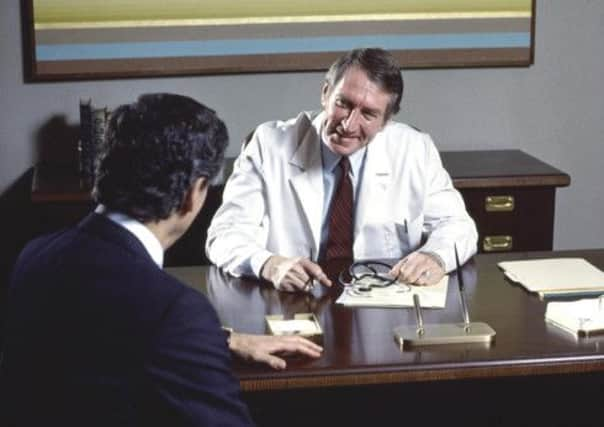Leaders: Mental health | Hillsborough


Evidence put before MSPs yesterday summarises in stark terms what this discrepancy means in real life. It seems that 45 per cent of all those off work because of ill-health are mental health patients.
This is a disturbing statistic. But it may be partly explained by the manifest difficulty people have in accessing treatment from the health service in Scotland.
Advertisement
Hide AdAdvertisement
Hide AdMSPs heard yesterday that the Scottish Government is lagging behind its targets for the diagnosis and treatment of mental illness, despite attempts in recent years to push it up the list of NHS priorities.
In fact, new figures show that 17 per cent of patients were not seen by specialists within the time frame set by NHS administrators. That figure is an average – in some areas the percentage waiting beyond the allotted time is as great as 27 per cent at certain times of the year.
This is simply not good enough. In cold economic terms it means that large numbers of Scots are incapacitated and unable to be productive on their own and society’s behalf. But it is the human cost that matters most, and the scale of human distress and unhappiness represented by these statistics is hard to comprehend.
One might suspect that mental illness among children would have been treated with more of a degree of urgency. However, the waiting lists for specialist NHS treatment are still forbiddingly long when it comes to children and teenagers with mental health issues.
These are young lives on hold. Issues of self-harm and eating disorders, to take just two examples, can devastate the lives of children, yet a teenager can wait months before even beginning treatment. This must feel like a lifetime to a young person, especially one struggling to keep up with the demands of a school life that is often ill-prepared to deal with those who find it hard to keep up.
It is entirely understandable that so much money and effort goes into improving the NHS treatment of potentially fatal conditions, such as cancer and heart disease. But other illnesses that blight lives, such as mental health illnesses, cannot lag so badly behind. And when it comes to addressing young people’s problems to give them a better start in life, then surely that must warrant a higher priority than appears to be the case at present.
Mental health deserves to be the Cinderella sector no more. It is time to treat physical and mental health with equal urgency, equal parity of seriousness, and a far greater parity of resources.
A small victory for the 96
IT WAS such a simple statement of the obvious, but relatives of the football fans who died in the Hillsborough disaster had waited 25 years to hear it.
Advertisement
Hide AdAdvertisement
Hide AdLord Justice Goldring, the coroner in the new inquest into the deaths of 96 Liverpool fans on that fateful day in 1989, yesterday said: “I don’t believe anyone will suggest that the conduct of those who died in any way contributed to their deaths.”
To the casual observer this may have seemed the most anodyne statement of fact, but it was greeted with great relief by the relatives, who have spent decades trying to clear the names of their loved ones after hurtful public smears about the conduct of the Liverpool support on that awful day.
One of the relatives said the statement was “music to our ears”.
The inquest has only just begun, but already there are hopes it could become the longed-for vindication of the Liverpool supporters – and the bereaved relatives who refused to stop fighting for justice for their loved ones.
There is now little question that some senior police officers scapegoated Liverpool fans in an attempt to deflect attention from the manifest failings of the police on duty that day at Hillsborough.
Some of this has already come to light as a result of previous inquiries, but the new inquest could be an important vehicle for a full exposition of the known facts, not least in how certain senior officers acted in the aftermath of the tragedy with a brutal disregard for the truth.
“Justice for the 96” is the slogan of the campaign group which has fought with great tenacity down all these years. It is to be hoped it may soon be a reality rather than a plea.